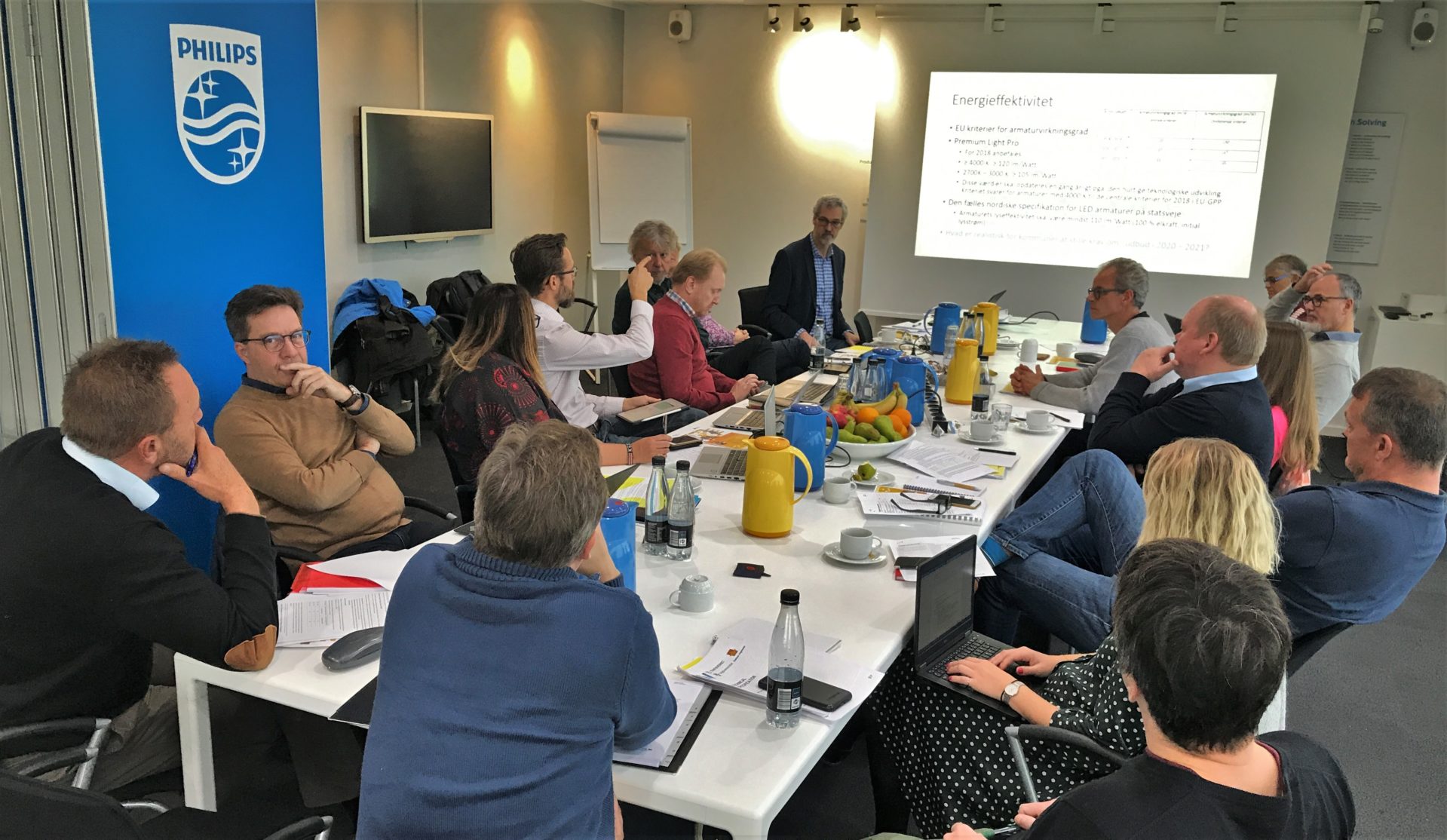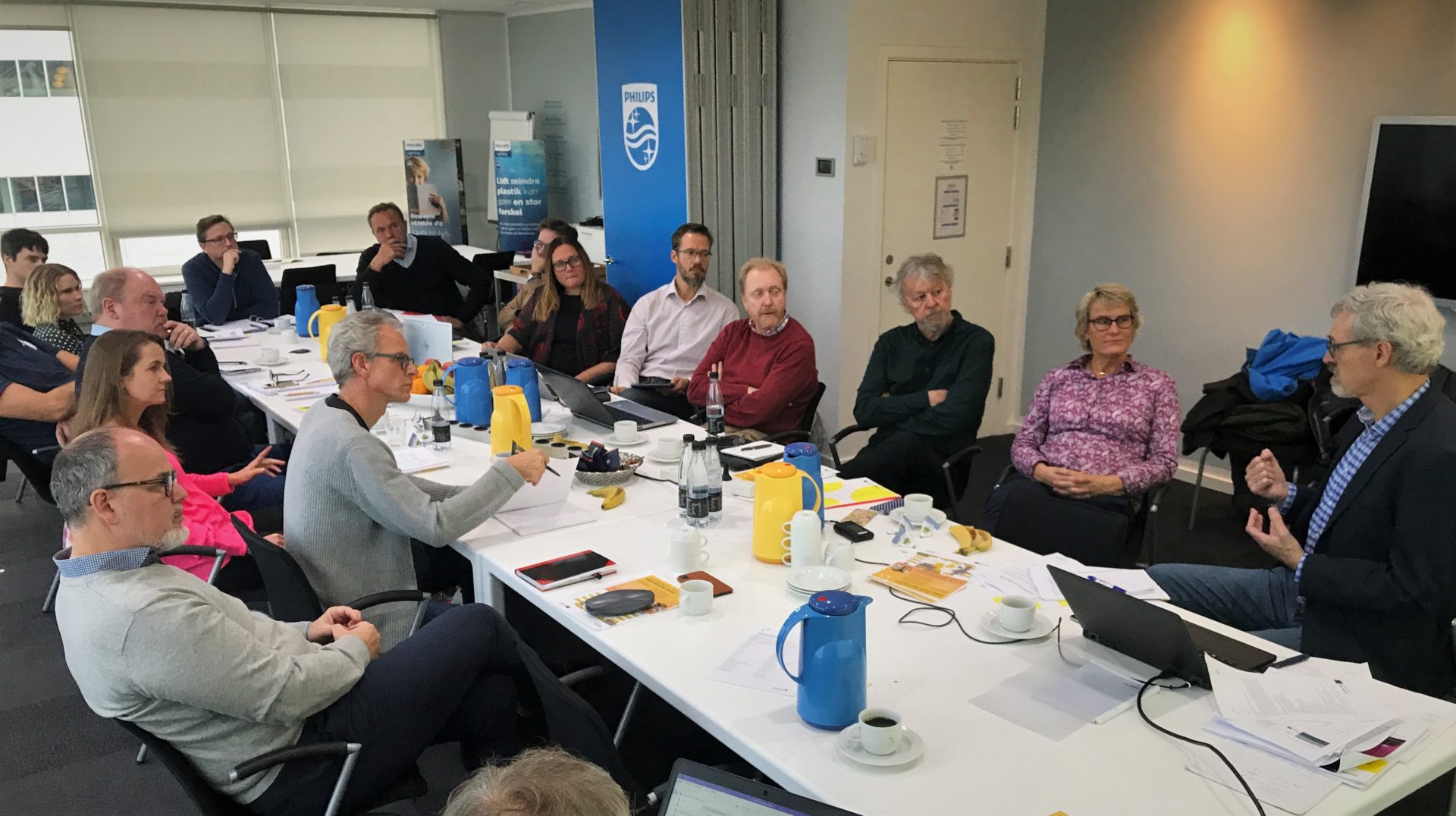
The Lighting Metropolis advisory board’s first meeting was hosted by Signify, in Copenhagen.
The Lighting Metropolis initiative, to accelerate the shift to modern lighting technology across the region, also provides a major opportunity to update the criteria that cities set out in their tenders, when investing in new lighting projects. A new advisory board has been tasked with raising the bar for municipalities.
The advisory board, made up of representatives from private companies within the lighting and consultancy industries in Denmark and Sweden, discussed a range of key topics at their first gathering, hosted by Signy in Copenhagen. It was acknowledged that the fast technological development requires not only updated guidelines and criteria for public lighting, but also a whole new perspective on the way municipalities think of lighting, which often act as the key enabler for their Smart City ambitions.
Also, the increased longevity of the products demands a new approach to calculating and negotiating the costs. While it’s often the cost of investment that drives the transition to modern lighting, there is also an increased focus on how the new solutions could best contribute to the cities’ livability and services.
-We want the municipalities to start asking more questions, bring more demands and start thinking about the bigger picture, said Sif Enevold, Chief project manager for Lighting Metropolis.
A well-covered topic by media lately has been light polution, and here the board members also agreed on a way forward:
-It’s typically not he municipalities but the private property owners that cause the light polution, but cities can get better at setting out clearer demands for avoding it, commented Nicklas Nilsson, Zumtobel.
It was also agreed that colour rendering perhaps shouldn’t be a primary concern for outdoor lighting, after years of high-and low pressure sodium lamps. Flicker is another area which today gets very little mention in guidelines, but is mainly an issue when dimming, and relating to the quality of the LED-driver.
The advisory board also agreed that the best approach for updating guidelines and criteria, is to take an holistic approach when looking for systems and solutions; from planning to hardware and cost of ownership, to lighting design, sustainability and livability.
-We’re moving towards a more dynamic society, with constant changes, which demands rigid standards, concluded Jakob Meiland, Novalume.
You can read more about the Lighting Metropolis advisory board, their mission and the individual members, here.




